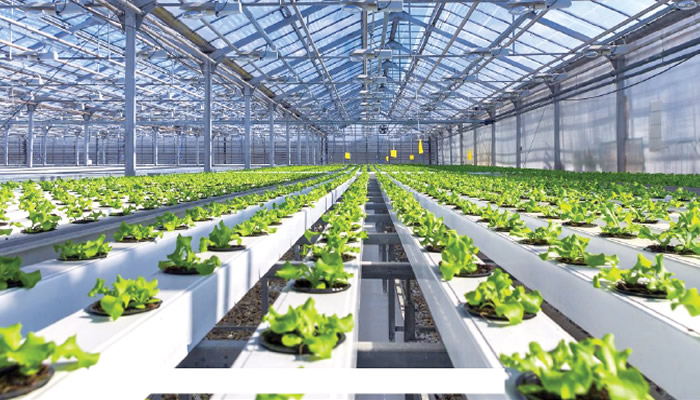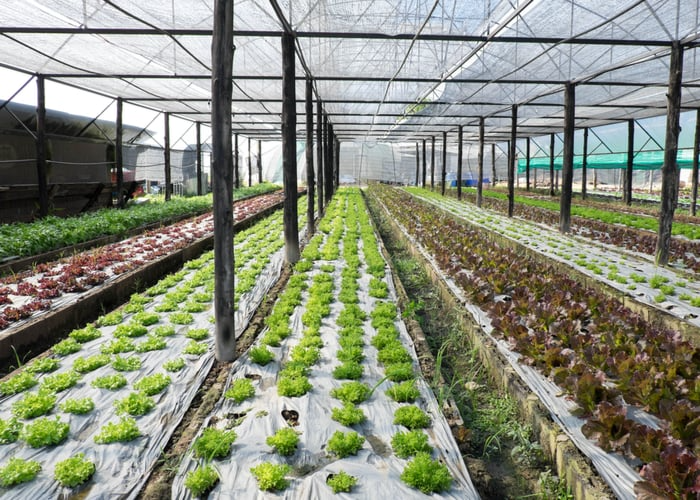Hydroponic farming is becoming increasingly popular as a solution for food security challenges in urban areas. Hydroponic farming refers to the cultivation of plants without soil, using nutrient-rich water instead. This method of farming has several advantages over traditional farming, such as reduced water consumption, higher crop yields, and the ability to grow crops in areas where the soil is not suitable for cultivation.
Advantages
- One of the main advantages of hydroponic farming is its water efficiency. In traditional farming methods, a significant amount of water is lost due to runoff and evaporation. However, hydroponic farming recirculates and reuses nutrient-rich water, using up to 90% less water making hydroponic farming an ideal solution for areas where water is scarce or expensive.
- Another advantage of hydroponic farming is the ability to maximize yields. Because the plants receive all of their nutrients directly from the water, they are able to grow faster and produce higher yields than they would in soil. Additionally, hydroponic systems can be designed to optimize growing conditions, such as temperature, humidity, and light, further enhancing crop yields.
- Hydroponic farming also offers the ability to grow crops in areas where soil is not suitable for cultivation. This includes urban areas where the soil may be contaminated with pollutants or lacking in nutrients. By using hydroponic systems, urban farmers can grow crops indoors, on rooftops, or in other small spaces, making it possible to produce fresh, locally-grown food in areas where it was previously unavailable.

Disadvantages
- Despite these advantages. It is important to take into account the drawbacks associated with hydroponic farming. To set up a hydroponic system the initial investment required is costly. The equipment and technology required to set up a hydroponic farm can be expensive, making it difficult for small-scale farmers to adopt this method of farming.
- Another disadvantage is the need for precise management of the hydroponic system. Because the plants are not growing in soil, it is necessary to closely monitor and modify the nutrient levels, pH levels, and water quality to maintain the best possible growing circumstances. This requires a significant amount of expertise and attention to detail, which can be challenging for inexperienced farmers.
In conclusion
Hydroponic farming has the potential to address food security challenges in urban areas by providing a water-efficient, high-yield solution for growing crops. While there are some disadvantages to hydroponic farming. The initial investment and management requirements.
The benefits of this method of farming are significant and offer a promising solution for sustainable, locally-grown food production. As technology continues to improve, it is likely that hydroponic farming will become even more accessible and affordable.
For more Amazing and Unique information and Posts Visit our Home page... If you have any suggestions or information feel free to share with us ….






